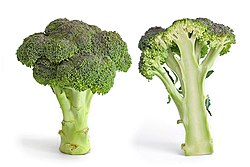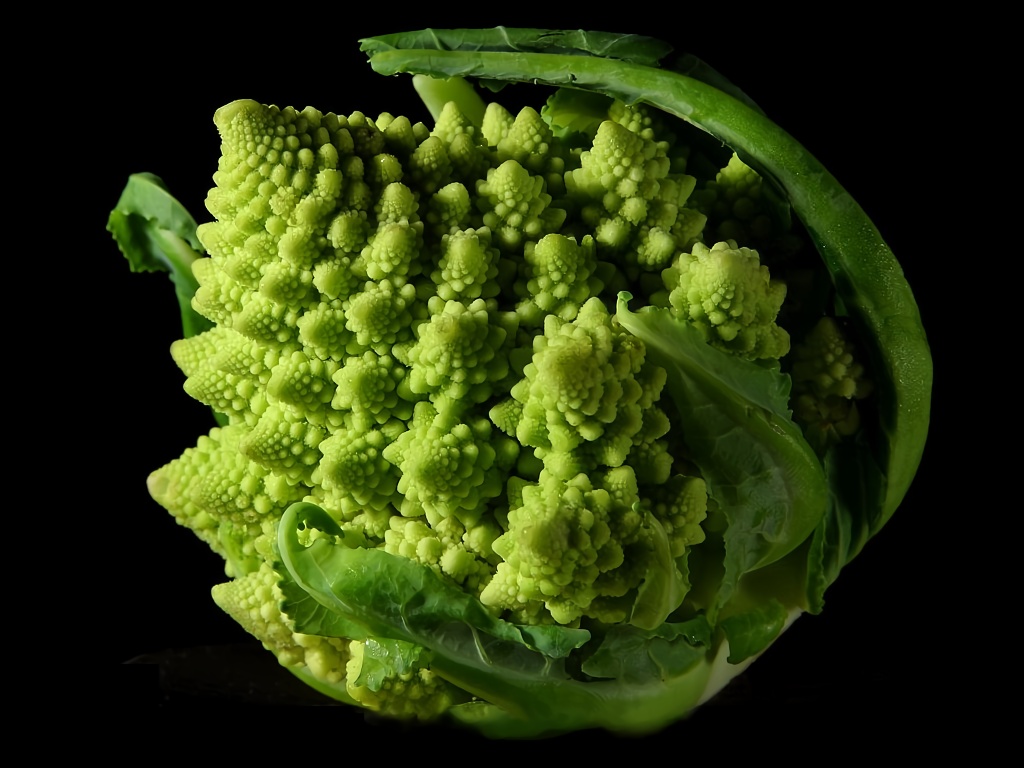 |
| Do you love broccoli? I guess I do. |
Yes -- broccoli, that green, flower-headed vegetable we all know and love.
I had been tweeting back and forth with my awesome friend Lee Anne about her own bemused discovery of being influential on the subject. Associating with her appears to have rubbed off on me: now, I too have been deemed a broccoli influencer!
 |
| Yours truly, Broccoli Person of Influence - per Klout |
Researcher dana boyd writes in Guilt Through Algorithmic Association how Google’s autocomplete sometimes affiliates innocent people with unrelated events or concepts.
 |
| Romanesco broccoli often exhibits fractal properties |
Because truthfully, I don’t know much about broccoli. And neither does my friend -- at least not more than any normal person.
Yet that’s what the algorithm declares, merely because we’ve happened to mention broccoli a few times in online conversation.
Based on these early results, the Klout mechanism for evaluating a person’s topical influence is obviously still in its developmental infancy -- I’m sure improvements are rapidly on the way.
The determinative algorithm isn't published anywhere, but it gives the impression of being heavily weighted towards simple keyword recurrence, for the moment.
Yet that’s what the algorithm declares, merely because we’ve happened to mention broccoli a few times in online conversation.
Based on these early results, the Klout mechanism for evaluating a person’s topical influence is obviously still in its developmental infancy -- I’m sure improvements are rapidly on the way.
The determinative algorithm isn't published anywhere, but it gives the impression of being heavily weighted towards simple keyword recurrence, for the moment.
Embracing the Mantle of Broccoli Authority
In her post, boyd asks the questions:
- What are the consequences of guilt through algorithmic association?
- What are the correction mechanisms?
- Who is accountable?
- What can or should be done?
There shouldn’t be any serious negative effects from having my online identity humorously associated with a vegetable. But who knows -- what if my boss hates broccoli? What if broccoli falls out of culinary fashion, and develops a gastronomic stigma? Could this adversely impact my career?
 |
| In Treehouse of Horror XI Homer Simpson is killed by eating broccoli |
Information services must nevertheless take responsibility for when their results prove erroneous (Klout, for the record, does allow users to manually remove topics that don’t make sense).
With respect to the last question, what can be done -- the most amusing course of action seems clear: Let’s reinforce the results with positive feedback, and deliberately cement my burgeoning reputation for online broccoli thought-leadership.
And that’s why I’ve larded up this entry with tangential broccoli references, facts and information (If you sign up for a Klout account, please +K me on the subject! Peer votes affect the results).
Want to know about broccoli? I’m your guy, and this is the canonical post you want to read.
Well, maybe not...
Additional broccoli facts compiled for no purpose other than to extend the author’s apparent but slightly misleading credibility with respect to Brassica oleracea
If you’re an actual broccoli expert, and are miffed by my transient appearance on the scene -- I’m sorry. I’m sure my era of broccolic tyranny will prove fleeting, once Klout improves their topic appraisal methodology (or reads this post).
In the meantime, here’s What You Might Not Know About You Know What...
Albert Broccoli was the producer (along with Harry Saltzman) of the James Bond films, overseeing their progression from low budget affairs to today’s lavish spectacles.
Dana Carvey’s SNL audition piece was called ‘Chopping Broccoli’:
Broccoli comes from the Italian plural of broccolo, “flowering top of a cabbage.” A part of the cabbage family, it was first introduced to the United States by Italian immigrants, but was not popular in North America until the 1920s. China, India, and the U.S. are the primary exporters, accounting for nearly three-quarters of world broccoli production. It is a cool-weather crop that fares poorly during hot summer weather.
Broccoli and Melted Cheddar = AWESOME
 |
| Yummm.... |
Don’t boil it -- this destroys many of the nutrients!
Lastly, I once tried to convince a close friend of mine to name her first child ‘Broccoli’. My helpful suggestion was ignored in favour of the more prosaic Rosaline.
 |
| Broccoli House by Brock Davis |
Garbage In, Garbage Out
The other topics that Klout alleges I’m influential about are also instructive: oasis and gym. I have no expertise in either of these terms (at least what most people would think of when they read those words). I did however, once muse about the destruction of a climbing gym called Rock Oasis.
The semantic abstraction hasn’t been made -- the claimed scope of influence is far broader than the reality. You might claim I’m mildly knowledgeable about ‘a climbing gym named Rock Oasis’ -- but the algorithm isn’t sophisticated enough to understand this. One day, though, it will be! That’s an exciting -- and scary -- prospect.
So to those readers who came across this blog looking for information about Oasis (the rock band) -- or broccoli recipes -- my sardonic apologies. Don’t blame me, it’s the algorithm that brought you here.
Algorithmically-driven services have notably gone awry many times. In the 2002 Wall Street Journal article If TiVo Thinks You Are Gay, Jeffrey Zaslow reported at length on how personalization technologies can output false associations or recommendations, based on misinterpreted data or input (full text of that article here).
Other examples of the perils of algorithmic association:
- The recommendation engines for Amazon and Netflix have grappled over their entire existence with the challenge of improving relevancy for suggested transactions based on past purchases
- Google-bombing is an example of people deliberately feeding in misleading information to drive artificial results from an algorithm, for comedic or satirical effect (e.g. ‘George Bush’ being linked to the search term ‘miserable failure’)
- LinkedIn and Facebook use social ads -- based on profile information -- to imply associations and to drive revenue from advertisements based on those links.
 |
| Steamed broccoli is an excellent source of retained nutrition CC Photo: Quadell |
These data sets are being coupled with increasingly complex, sophisticated, automated systems that attempt to predict or recommend future actions or preferences. The results of this combination can have an unintended impact on our online identity.
Judging by my alleged influence about broccoli -- apparently we still have a lot of progress to make.
What about you?
Are you influential about a random topic? Share your story in the comments and describe how you think it occurred.
Related reading:
Eli Pariser’s Filter Bubble Problem
How to Opt-out from LinkedIn Social Ads
Broccoli recipes (allrecipes.com)
What your Klout Score Really Means (Wired)
